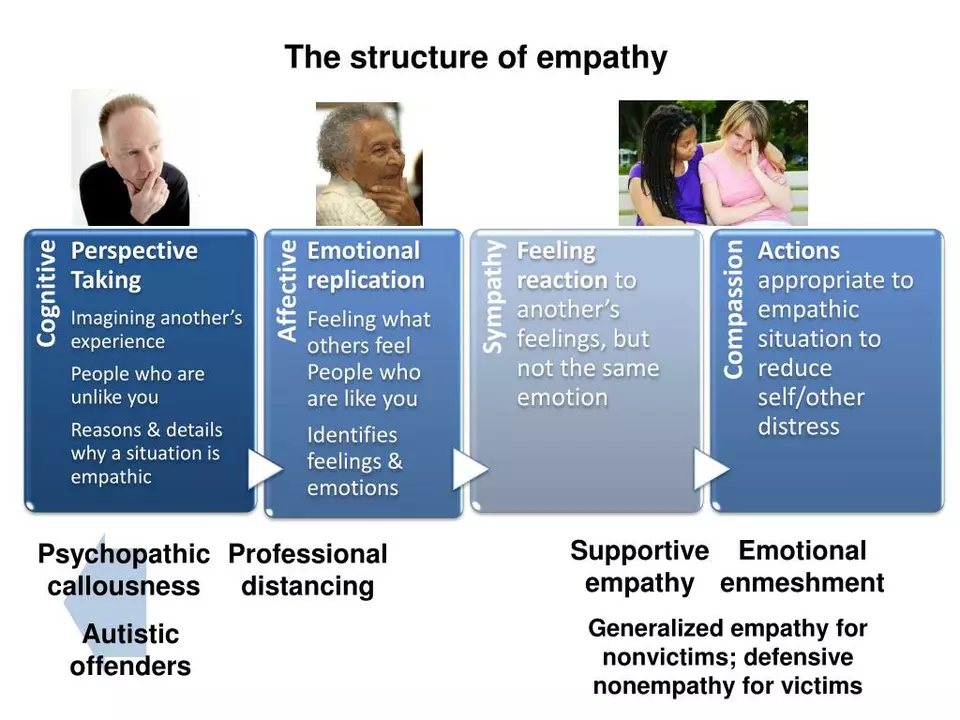Introduction: Embracing Our Weaknesses
Our society often encourages us to be strong and to hide our weaknesses. However, this mentality can prevent us from developing genuine empathy for others. In this article, we will explore the relationship between weakness and empathy, and how embracing our vulnerabilities can lead to deeper connections with those around us. We will discuss the following topics:
Understanding Our Own Weaknesses
To cultivate empathy, we must first understand our own weaknesses. This might involve examining past experiences, understanding our fears, and recognizing our own limitations. When we are open and honest with ourselves about our vulnerabilities, we can begin to develop a greater sense of empathy for others who may be facing similar challenges.
Take the time to reflect on your own life and consider the areas where you might feel vulnerable or insecure. Recognize that these weaknesses are part of what makes you human, and that acknowledging them can help you to better understand and support others.
The Power of Vulnerability
Embracing vulnerability can be uncomfortable, but it is also incredibly powerful. When we allow ourselves to be vulnerable, we create space for authentic connections and conversations. Instead of hiding behind a mask of strength, we can share our true selves with others, fostering deeper relationships and greater understanding.
By admitting our own vulnerabilities, we can also create a supportive environment in which others feel comfortable sharing their own struggles. This is the foundation of empathy – being able to understand and share the feelings of others because we have experienced similar emotions ourselves.
Developing Empathy through Active Listening
One of the most important aspects of empathy is active listening. This means truly hearing what another person is saying, without judgment or interruption. When we listen attentively to someone sharing their struggles, we are better able to understand their perspective and offer support.
As you practice active listening, be mindful of your own thoughts and reactions. Are you truly hearing what the other person is saying, or are you focused on your own response? By focusing on the other person and their experiences, you can develop greater empathy and understanding.
Empathy and Emotional Intelligence
Emotional intelligence is the ability to recognize, understand, and manage our own emotions, as well as the emotions of others. Empathy is a core component of emotional intelligence, as it allows us to connect with others on a deeper level. By developing our emotional intelligence, we can better understand the emotions and experiences of those around us, and respond in a more compassionate and supportive way.
To improve your emotional intelligence, consider practicing mindfulness and self-awareness. This can help you to better understand your own emotions and reactions, as well as the emotions of others.
Challenging Stereotypes and Assumptions
Empathy requires us to challenge our own stereotypes and assumptions about others. We often make judgments about people based on their appearance, background, or beliefs, without considering the unique experiences that have shaped their lives. These judgments can create barriers to empathy, making it difficult for us to truly understand and support others.
Instead of relying on stereotypes or assumptions, strive to approach each person you encounter with an open mind and a willingness to learn about their experiences. By doing so, you can develop a more empathetic and compassionate outlook.
Empathy in Everyday Life
Empathy is not just a skill reserved for therapists or social workers; it is something that we can all develop and practice in our everyday lives. From offering a listening ear to a friend in need, to supporting a coworker facing a difficult situation, there are countless opportunities for us to demonstrate empathy and compassion.
As you go about your daily life, make a conscious effort to be more empathetic and understanding of those around you. You may be surprised by the impact it has on your relationships and your own personal growth.
Conclusion: The Transformative Power of Empathy
By embracing our own weaknesses and developing empathy, we can create more meaningful connections with others and foster a greater sense of understanding and compassion in our world. Remember that empathy is not a one-time act, but a lifelong practice that requires us to continuously challenge our assumptions, listen actively, and be vulnerable with others.
As we learn to embrace our weaknesses and cultivate empathy, we can experience the transformative power of true human connection and support one another in our shared struggles and triumphs.




Brian Klepacki on 27 May 2023, AT 12:56 PM
Picture the grand theater of human experience, where every flaw is a spotlight demanding our attention.
When we strip away the polished armor of invincibility, we reveal the raw, trembling heart that beats beneath.
That trembling is the conduit through which true empathy flows, a river forged by shared fragility.
Imagine a world where we glorify weakness as the ultimate source of connection, not as a flaw to be hidden.
Each scar becomes a story, each doubt a bridge to another's pain.
In this delicate dance, the act of admitting our anxieties is not a surrender but a bold proclamation of authenticity.
The more we confess our own shadows, the brighter we illuminate the shadows of others.
Empathy, then, is not a passive feeling but a vigorous, almost theatrical performance where we echo each other's sorrows.
It demands that we listen with the same intensity we would reserve for a soliloquy on a stage.
Our emotional intelligence sharpens as we practice this voyeuristic intimacy, turning every whispered confession into a chorus of understanding.
Moreover, by challenging the stereotypes that line the cheap seats of our judgments, we free the audience to witness the full spectrum of humanity.
We become directors of compassion, rewriting the script that once dictated stoicism as virtue.
The everyday moments-offering a coffee to a grieving colleague, sitting in silence with a friend-are the rehearsals that perfect this art.
Thus, embracing our vulnerabilities is not a sign of defeat; it is the crescendo that propels the symphony of human connection.
When the final curtain falls, we find that the applause belongs not to the strong alone, but to all who dared to be weak and, through that, became profoundly empathetic.